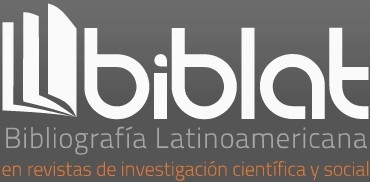Translation: between the universal and the local
DOI:
https://doi.org/10.35494/topsem.2011.1.25.84Keywords:
_Abstract
Translation, in every historical period and in every geographical
area, involves three related practices: an interpretive act in which
the translator applies formal and thematic interpretants to
transform the source text into the translated text; the construction
of a network of intertextual relations through the application of
interpretants, which create relations to the source text and culture
as well as the receiving language and culture; and the establishment,
through these practices, of an ethical attitude towards the
source text and culture, whereby the translation preserves or
challenges the cultural and social statu quo in the receiving
situation. To preserve is to reinforce the current hierarchy of
linguistic and cultural values; to challenge is to register linguistic
and cultural differences by upsetting that hierarchy so as to
signal a respect for the source text and culture. These points are
developed through two case studies, one involving Livius
Andronicus’s Latin translation of the Homeric Odyssey, the other
involving two English versions of Seneca’s play, Oedipus, one
by the scholar E. F. Watling, the other by the poet Ted Hughes.
Downloads
References
BERMAN, Antoine (1999 [1985]). La traduction et la lettre, ou l’auberge
du lointain. París : Seuil.
CONTE, Gian Biagio (1999). Latin Literature: A History [Trad. Joseph B. Solodow] [Rev. Don Fowler y Glenn W. Most]. Baltimore and London: Johns Hopkins University Press.
DERRIDA, Jacques ([1972] 1998). “Firma, acontecimiento, contexto”, Márgenes de la filosofía [Trad. de Carmen González Marín]. Madrid: Cátedra, pp. 361-362.
ELIOT, T. S. “Shakespeare y el estoicismo de Séneca” (1927 [1944]). Los poetas metafísicos y otros ensayos sobre teatro y religión [Trad. de Sara Rubinstein], vol. I, Buenos Aires: Emecé.
FAAS, Ekbert (1980). Ted Hughes: The Unaccommodated Universe. Santa Bárbara (CA): Black Sparrow.
FEINSTEIN, Elaine (2001). Ted Hughes: The Life of a Poet. Londres: Weidenfeld and Nicolson.
GADAMER, Hans-Georg (1977 [1975]). Verdad y método [Trad. de Ana
Agud Aparicio y Rafael de Agapito]. Salamanca: Sígueme.
HUGHES, Ted (1969). Seneca’s Oedipus. Londres: Faber and Faber.
___________ (1970). Crow: From the Life and Songs of the Crow. Londres: Faber and Faber.
LEWIS, Charlton T., y Charles Short (1879). A Latin Dictionary. Oxford: Clarendon Press.
MESCHONNIC, Henri (1973). Pour la poétique II. París : Gallimard.
OLSON, Charles (1950). “Projective Verse”. Donald M. Allen (ed.). The New American Poetry. Nueva York: Grove, 1960, pp. 386-399.
POLLOCK, Sheldon (1996). “Philology, Literature, Translation”. Enrica Garzilli (ed.). Translating, Translations, Translators: From India to the West, Cambridge (MA): Harvard University Press, pp. 111-129.
SMITH, William (1875). A Dictionary of Greek and Roman Antiquities. Londres: John Murray.
WARMINGTON, E. H. (ed. y trad.) (1936). Remains of Old Latin, vol. 2,
Londres, William Heinemann y Cambridge (MA): Harvard University Press.
WATLING, E. F. (ed. y trad.) (1966). Seneca: Four Tragedies and Octavia. Harmondsworth: Penguin.
Downloads
Published
How to Cite
Issue
Section
License

Tópicos del Seminario is licensed under a Creative Commons Reconocimiento-NoComercial-CompartirIgual 4.0 Internacional License.














